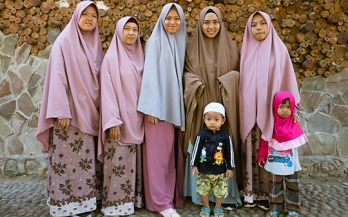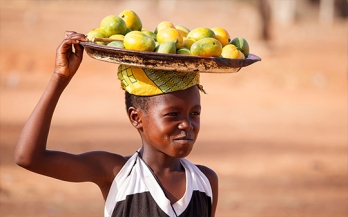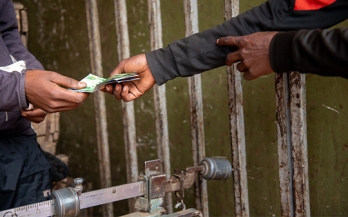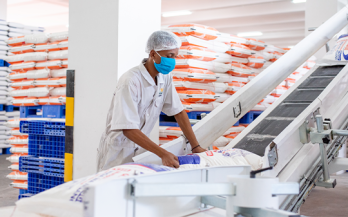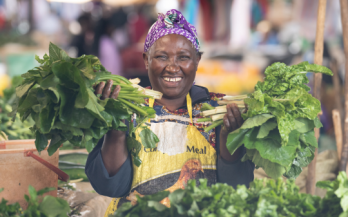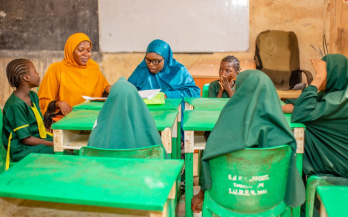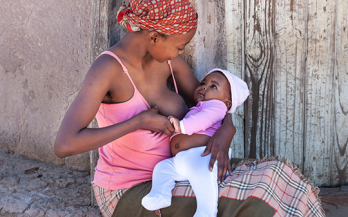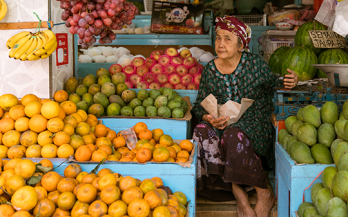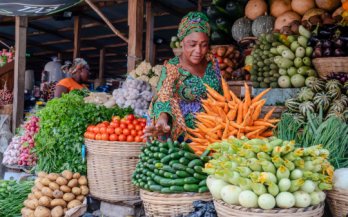Malnutrition and food insecurity remain a pressing issue in Bangladesh, with significant implications for public health. Despite improvements in agricultural productivity and food security, the country continues to grapple with micronutrient deficiencies (MNDs), particularly zinc deficiency, which affects vulnerable populations, especially women and children.
GAIN's Approach to Nutrition-Sensitive Social Protection
Through partnerships, policy advocacy, and programmes, GAIN works in seven countries to make social protection systems more nutrition-sensitive and better equipped to combat systemic and intergenerational inequities that limit the reach of vital services.
Last month the UN Food and Agriculture Organization released its biennial State of Agricultural Commodity Markets report, and we were delighted to see it focusing on a topic close to our own hearts: policy coherence between trade and nutrition.
As part of a team that has been working on nutrition-focused investing for several years, sometimes feeling like we were the only ones at the table, it’s been an exciting few months! Nutrition as an investment theme really seems to be resonating more widely and gaining traction in diverse places.
Food system transformation requires long-term commitment, but we live in a world of short-term political cycles and unforeseen crises that can deter momentum and reset policy priorities. Given that political economy dynamics can stymie efforts to implement food systems transformation agendas, GAIN has partnered with the International Food Policy Research Institute (IFPRI) to develop a Political Economy Decision Toolkit that identifies possible bottlenecks ex-ante and utilizes different sets of strategies to overcome them. The Toolkit was informed by discussions with GAIN’s policy advisors across Africa and Asia and revolves around six main domains that can be applied to either a narrow food policy issue, such as expanding school meals programmes, or to a broader topic, such as implementing national food system pathways.
Serving the needs of lower-income consumers requires getting food products to where they are—which often includes remote rural areas as well as underserved urban neighbourhoods. This makes distribution a key, but also costly, aspect of the business model. Using a ‘hub’ model, in which aspects of distribution are grouped together instead of done separately, can improve efficiency and cost-sharing, reducing costs overall.
Improving the nutrition impacts of social protection requires targeted improvements to programme designs. GAIN believes that good social protection design involves meaningfully leveraging vulnerable beneficiaries’ voices. Doing so can help administrators better understand how to overcome constraints and address beneficiaries’ specific nutritional needs. Beneficiaries have the advantage of proximity to the key issues: they understand their specific constraints and challenges better than any other system actors. While the need to incorporate beneficiaries’ perspectives, and the value of doing so, is well accepted by social protection administrators, they often face substantial hurdles to doing so in practice: logistical constraints, language barriers, differing value systems, power dynamics, and other factors make meaningful engagement with beneficiaries a significant challenge. GAIN has set out to identify ways to support administrators to overcome these constraints, particularly through human-centered design (HCD).
Through an innovative intervention called Emo Demos, about 12,680 women learned about the importance of breastfeeding. Meet Madalena, one of these women who learned to care for herself and her children during pregnancy and breastfeeding.
GAIN Indonesia was at the forefront of Green Economy Expo held by The National Development Planning Agency (BAPPENAS) on July 3-5 in Jakarta. This year’s theme was “Advancing Technology, Innovation, and Circularity”. The event brought to the forefront discussions on sustainable development and the implementation of circular economy principles throughout Indonesia.
Final distribution to the consumer is a key challenge in addressing affordability for lower-income consumers, particularly in rural and remote areas or crowded lower-income urban neighbourhoods. One way to address this, particularly in places where there are few existing retail outlets, is through creation of a bespoke last-mile distribution (LMD) network. Creating such a network involves recruiting and training distribution/sales agents; equipping them for the job; and providing them with appropriate pay, incentives, and supervision. The agents can be employees, contactors, or micro-franchisees and can sell on foot, bike, using a pushcart or adapted motorcycle, from their homes, or through stalls.
